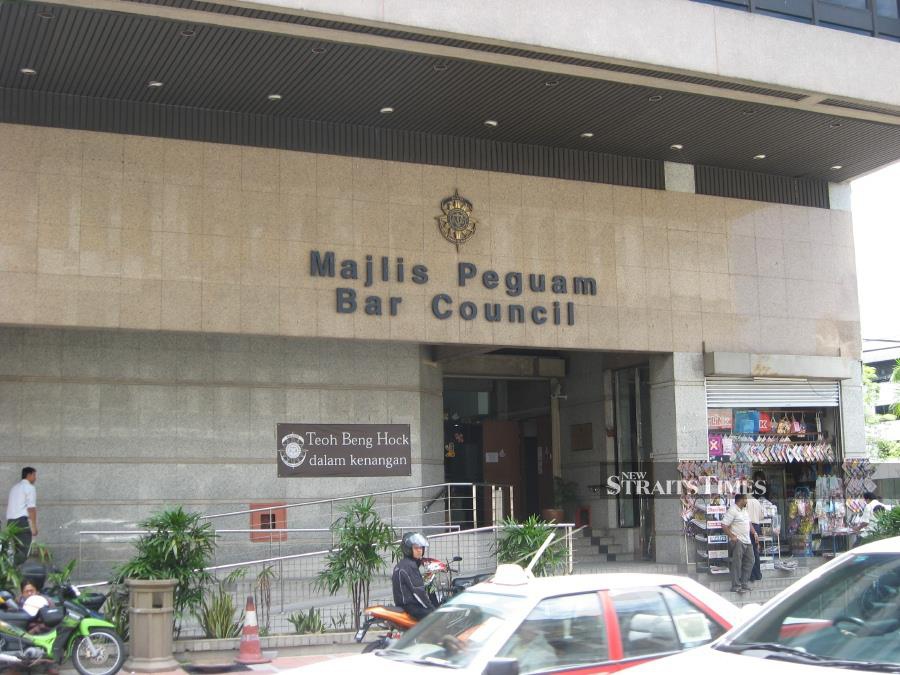KUALA LUMPUR: The Malaysian Bar has restated its position that certain regressive amendments to the Federal Constitution (FC) regarding citizenship should be halted.
Its president Karen Cheah Yee Lynn said the right of stateless persons was not eroded because of the FC but due to the inefficiencies, complex and discriminatory bureaucratic practices, and lack of transparency within the National Registration Department (NRD).
She said the government should instead focus its resources on training officers in the NRD to efficiently deal with citizenship applications and abolish unnecessary discriminatory bureaucratic hurdles that seek to delay the processing of such applications.
"While the Malaysian Bar supports efforts by the government to amend citizenship provisions in the FC to grant Malaysian mothers the equal right to confer automatic citizenship on their children born overseas, just like Malaysian fathers (these particular regressive amendments) approved by the cabinet and championed by the home minister are no better than crumbs of compassion that come with overbearing barriers of exclusion on other areas concerning statelessness.
"The Malaysian Bar's stand is that the government's proposed amendments to the FC are regressive in nature, and it has become increasingly urgent that the government takes the severe pushback expressed by numerous quarters, instead of continuing to pursue the regressive amendments," she said in a statement.
Cheah said amending Section 19B of the Second Schedule, Part III of the FC to alter citizenship by "operation of law" to citizenship by "registration" would result in foundlings and abandoned children being deprived of automatic citizenship.
She said the term "operation of law" affords protection to foundlings as this provision grants them the benefit of the doubt in cases where the date and place of their birth, as well as the identity of their biological parents, are unknown and cannot be substantiated.
"The suggested amendment seeks to place foundlings under the discretionary authority of the home minister for citizenship determination, unjustly imposing the onus of proving parentage on the child.
"Amending Section 1(a) of the Second Schedule, Part II of the FC to delete the words 'permanently resident', would result in children born to Malaysian permanent residents becoming stateless and no longer have access to citizenship by 'operation of law'.
"In effect, vulnerable populations — including current stateless communities like the 'childhood statelessness' category, Orang Asli, and Orang Asal — could also face the peril of being ensnared in the cycle of statelessness across generations.
"Amending Article 26(2) of the FC to replace 'date of the marriage' with 'date of obtaining citizenship' may lead to citizenship deprivation of foreign wives, because if a Malaysian man's marriage dissolves within two years of his wife being granted Malaysian citizenship, the foreign spouse's citizenship will be revoked.
"This will have far-reaching consequences on the foreign spouse and the children (if any)," she said.
Cheah said amending Article 15(A) of the FC to reduce the age limit from 21 to 18 for citizenship registration effectively shortens the time frame for applications.
She said the main source of the problem is the bureaucratic delays and appeals, which could take years to process citizenship applications, that subsist, as well as introduce, an illegitimate registration requirement that never existed previously.
"It would appear that the cabinet's approval of these amendments is an antithesis to the citizenship provisions in the FC, which were meant to prevent, not manufacture, statelessness.
"While the Cabinet has given the green light to these regressive amendments, the decision creates a polychromatic hue when juxtaposed with other government policies and law reform initiatives, particularly those aimed at empowering the Human Rights Commission of Malaysia.
"These proposed regressive amendments are designed to allow the NRD to impose discretionary citizenship processes in addition to the existing bureaucratic hurdles faced by stateless persons," she said, adding that the Malaysian Bar will continue to oppose these regressive amendments.
She added that the Bar was guided by the fact that the right to nationality constitutes a fundamental human right as enshrined in Article 15 of the 1948 Universal Declaration of Human Rights.






